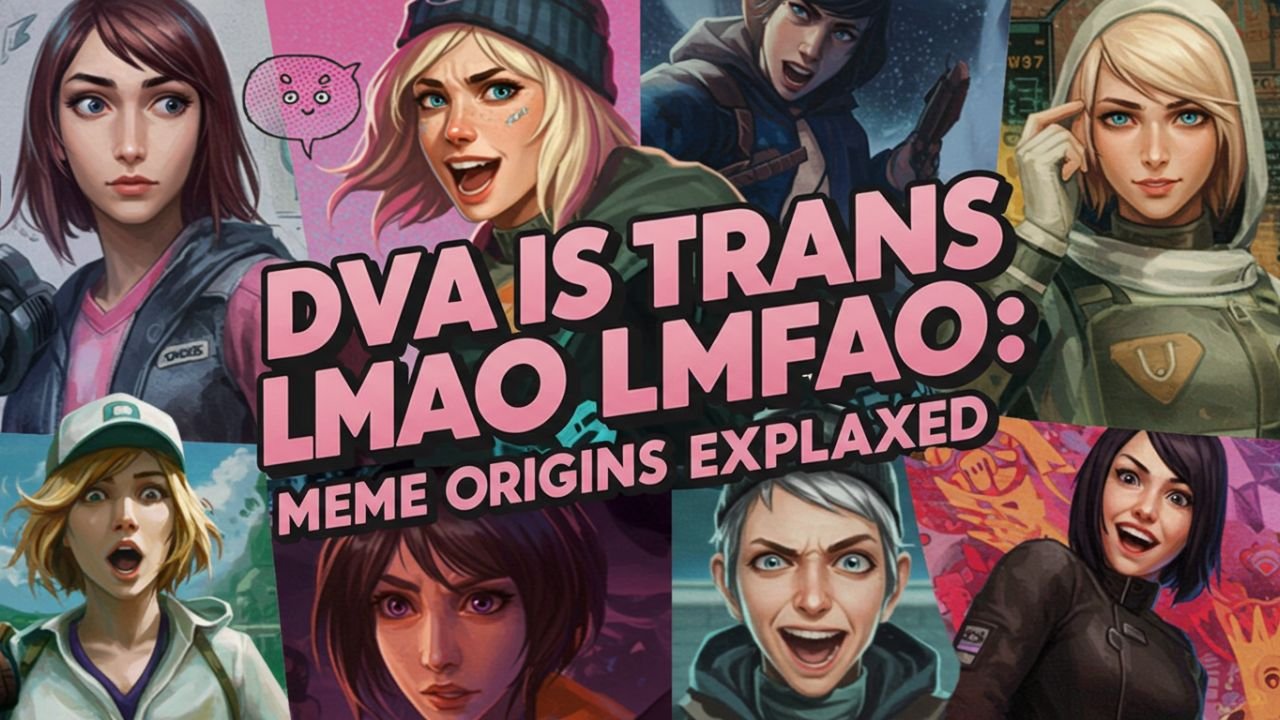Introduction to DVA and Trans LMFAO memes
The internet is a wild place, filled with memes that spark laughter, discussions, and sometimes even controversy. One of the latest trends capturing attention is the “DVA Is Trans LMFAO” meme. It’s a blend of gaming culture and LGBTQ+ representation that has taken off in unexpected ways.
For those who may not know, D.
Va is a popular character from Overwatch a game that boasts an expansive fandom. But what happens when this beloved mech pilot meets trans identity in an explosion of humor? This blog will dive deep into the origins and evolution of these memes while exploring their impact on both internet culture and the LGBTQ+ community. Buckle up; it’s going to be quite the ride!
The origins of the DVA meme
The DVA meme emerged from the popular Overwatch game, featuring D. Va, a skilled mech pilot. Her playful personality and iconic catchphrases quickly caught the attention of gamers. Players began to create humorous edits and fan art that showcased her character in different scenarios. Some even highlighted her confident demeanor and competitive spirit.
As memes evolved, snippets of dialogue were taken out of context, leading to absurd but relatable interpretations. The combination of clever visuals and sharp wit created a fertile ground where creativity flourished. Fans embraced these remixes, sparking various trends within gaming communities online. Memes depicting D. Va became synonymous with humor surrounding gaming culture while also inviting deeper conversations about identity in virtual spaces.
The evolution of the Trans LMFAO meme
The Trans LMFAO meme burst onto the scene, drawing inspiration from a variety of social and cultural contexts. Initially rooted in humor, it quickly became a platform for conversations about gender identity. As memes often do, this one evolved rapidly. Creators began remixing images and videos to reflect their experiences, infusing personal narratives into what started as a lighthearted joke. The juxtaposition of laughter with serious themes created an unexpected depth.
Soon enough, platforms like Twitter and TikTok became hotspots for sharing variations of the meme. Users embraced its versatility transforming it into not just entertainment but also advocacy. What’s fascinating is how these iterations showcased resilience within the LGBTQ+ community. Each post carried layers of meaning that resonated beyond mere amusement. This evolution highlights art’s ability to spark dialogue while creating connections among diverse individuals navigating similar journeys.
How these memes spread and gained popularity
The spread of the DVA is Trans LMFAO meme can be traced back to social media platforms. Twitter and TikTok became hotspots for creators eager to engage with the content. A simple image or video could spark a wave of remixes, driving engagement. Users embraced the humor in combining gaming culture with LGBTQ+ themes. This fusion attracted diverse audiences, expanding its reach beyond dedicated gamers.
As more people shared their takes, variations emerged. Each user added their flair, keeping the meme fresh and relevant. Popularity soared as influencers joined in, sharing it across broader networks. Memes thrive on relatability and community participation. The playful nature encouraged users to share experiences tied to identity and acceptance, amplifying its impact within online spaces. As discussions unfolded around these memes, they drew attention from both fans and critics alike.
Impact of the memes on LGBTQ+ community
The “DVA is Trans LMFAO” meme has sparked conversations within the LGBTQ+ community. It’s more than just a joke; it resonates with many who see themselves in these themes of identity and expression. Memes like this create a sense of belonging among individuals questioning or celebrating their identities. They can provide humor during challenging times, allowing people to engage with serious topics while keeping the mood light.
Moreover, visibility matters. When memes highlight trans experiences, they bring attention to issues often overlooked in mainstream discussions. This helps foster understanding and acceptance. However, not everyone finds these memes empowering. Some argue that oversimplification can lead to misunderstandings about transgender lives and struggles. Balancing humor with respect is vital for meaningful dialogue within the community. Despite differing opinions, it’s clear that such memes play a role in shaping narratives around gender identity today.
Controversies surrounding the memes
The “DVA Is Trans LMFAO” meme has sparked significant debate within the online community. Some individuals embrace it as a means of humor and representation, while others view it as trivializing important discussions around gender identity. Critics argue that memes like this can perpetuate stereotypes or misunderstandings about transgender experiences. They worry that reducing complex identities to punchlines undermines the struggles many face in real life.
In contrast, supporters assert that these memes foster acceptance by normalizing conversations about trans identities in pop culture. They believe humor can be a gateway for increased awareness and empathy. However, navigating these waters is tricky. The line between comedy and insensitivity often blurs, leading to heated debates among fans and activists alike. Such controversies highlight the dynamic nature of internet culture—where jokes can quickly become battlegrounds for social issues.
Conclusion: The power of internet culture and its impact on society
The power of internet culture is undeniable. Memes like “DVA is Trans LMFAO” showcase how quickly ideas can spread and evolve in the digital age. These memes serve not only as comedy but also reflect societal attitudes toward gender identity and expression. As they gain traction, these funny yet thought-provoking images challenge stereotypes and foster discussions within the LGBTQ+ community. They provide a voice to those who may feel marginalized or misrepresented in mainstream media.
However, with popularity comes controversy. The humor that resonates with many may not sit well with others. This dichotomy raises questions about inclusivity and representation in meme culture. These memes are more than just laughs; they encapsulate a cultural moment where humor intersects with serious dialogues about identity. As internet cultures continue to flourish, their impact on society remains profound, shaping perceptions while entertaining millions worldwide.
